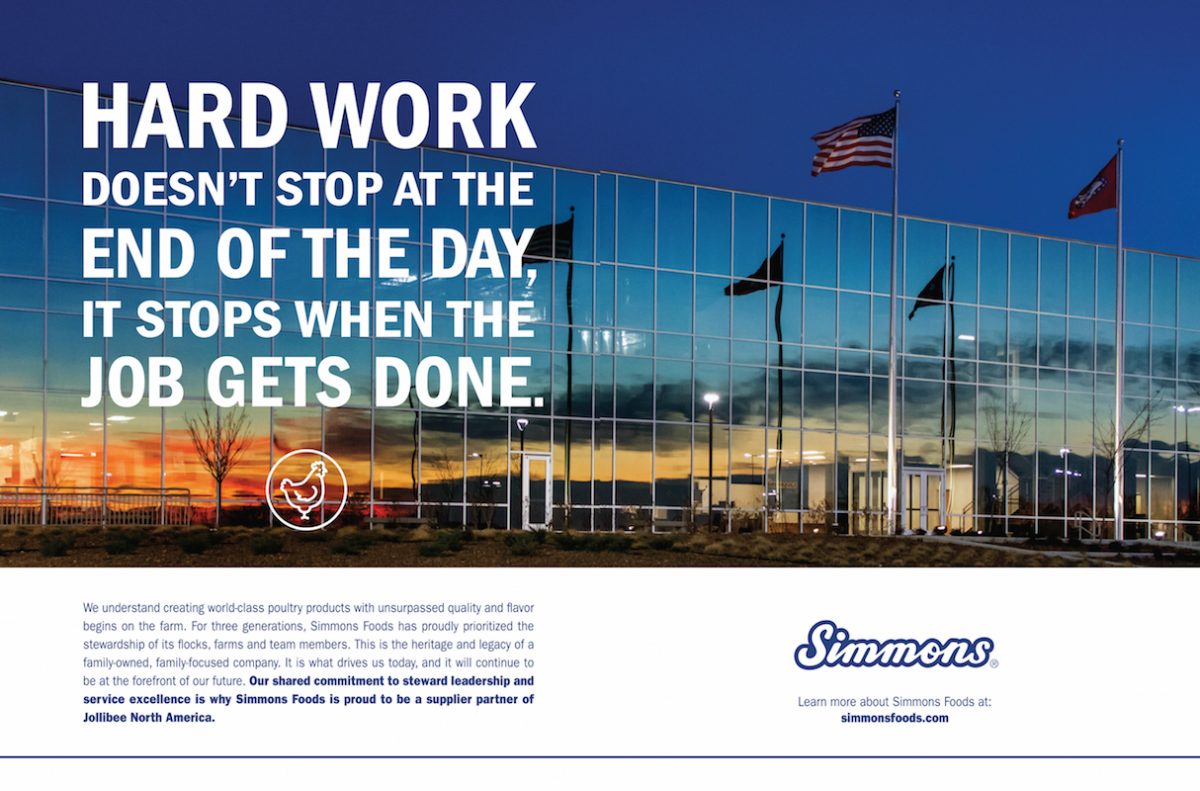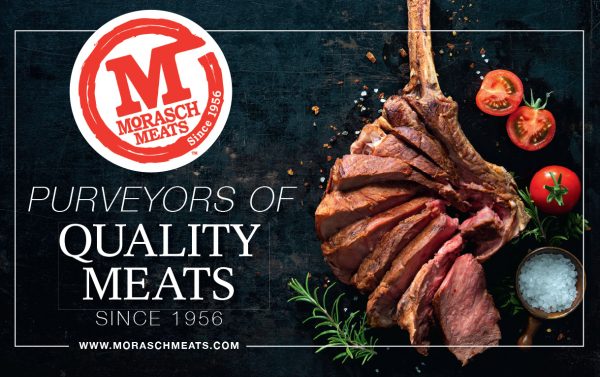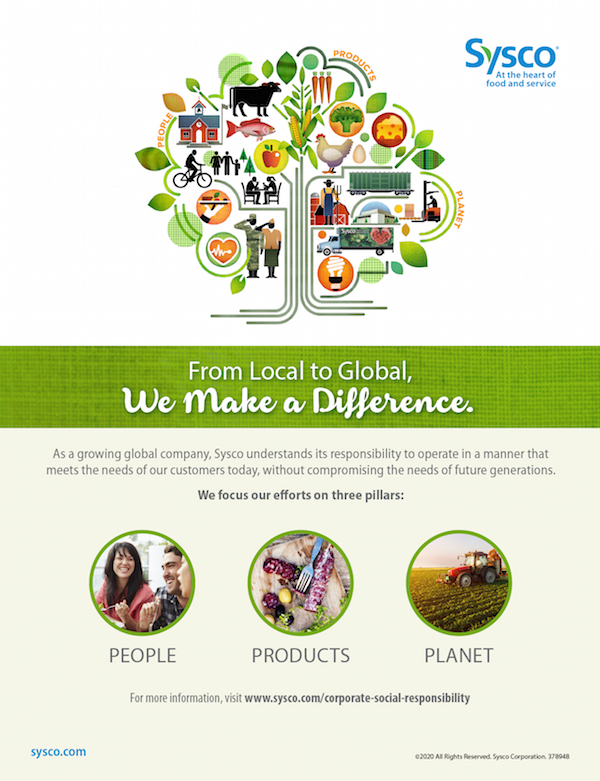Jollibee is part of life for any Filipino. The sight of the smiling red bee was designed to epitomize Filipino optimism as well as trigger memories of childhood, home, warmth – the Philippines. “Jollibee is part of growing up,” says Maribeth Dela Cruz, President of Jollibee North America.

Maribeth has been leading the business’s North American arm since 2013. “Jollibee is part of family memories. It’s a place where you celebrate your birthday and special occasions.”
A graduate of business economics, Maribeth started her career in finance at the multinational consumer goods corporation Procter & Gamble in the Philippines.
But that path was shortlived as, six months in, she was offered an opportunity to join the Filipino multinational chain of fast-food restaurants, Jollibee Foods Corporation.
Jollibee is a recognized brand in the Philippines, and one that continues to experience rapid growth globally. “I started in operations,” she notes.
“Through and through, I’m an operations person. I worked as a shift manager and built my way up to a store manager, then an area manager.”
The speed of the industry is one of its enticements, as well as its energy and diverse environment. “It’s never boring,” Maribeth gushes. “It’s always exciting. I like the way you’re able to interact with different people – whether it be your superior or a crew member.”
The other advantage of the industry is dealing with different customers and vendors, she adds. Such interactions provide a chance to see different aspects of society. “It keeps me motivated.”
The turnaround
After five years at Jollibee, Maribeth decided to try something else. For three years, she worked at another fast-food chain. As luck would have it, Maribeth got an offer to return to Jollibee.
She continued to move up in rank from area manager to district manager, until she was offered an opportunity she could not refuse. “It was in 2005. I was offered the chance to help in the turnaround of Jollibee in North America.
I’ve been with Jollibee ever since,” she recalls. Upon her return, Maribeth was given the mandate to see if there was an opportunity to grow Jollibee in North America, or whether it was time for the business to leave and attempt growth elsewhere.
At the time, the company was on the verge of folding up the business and calling it quits. Nonetheless, Maribeth packed her bags and left for the US to revive the beloved Filipino brand.
“When I arrived in 2005, the business was dropping,” Maribeth explains, adding that she initially led the North America business as General Manager before taking on the Vice President role.
We’re all excited for the future and we look forward, in the years to come, to playing a key role in the restaurant industry in North America.

“There were about nine locations at the time, and most of them were losing money,” she says.
The brand was in turmoil, and its positioning in the market was undefined and didn’t look secure.
“We were a Filipino brand that was supposed to hit the market in the US.” However, it wasn’t working, which triggered the thought that perhaps the company had crossed over into a new market too soon.
Since Jollibee’s arrival in North America in 1998, the main issue noticed was that the brand had changed.
The original Filipino market felt that it was no longer the distinct Jollibee they enjoyed at home.
“They turned their backs on the brand,” Maribeth explains. “And so did the new market who did not know us. They didn’t understand the product.
It was a confusing brand at that point. That did not help with bringing in the sales and business.”
Maribeth saw that there was ample work to be done. So, together with her team, a plan was made to re-establish the business. “We had to be a brand that represented the taste of home,” she says.
“We had to bring the brand back to how it was initially.” The resurgence of the business started with the return of several menu favorites such as Burger Steak – a seasoned burger patty topped with creamy mushroom gravy.
It was also about reformulating the menu, so that all the items tasted and looked like the products in the Philippines. “We had to bring a few people in to make sure our quality standards were put into place,” Maribeth comments.
“We also streamlined our menu, and removed items that were contributing to the muddled positioning of the brand. That resulted in simplified kitchen operations, which allowed us to really focus on improving the quality of food items to what Jollibee is known for.
We put all those things in place, including bringing in nine restaurant managers from the Philippines to help us. When you bring the culture, you bring the values.” The strategy worked, and Jollibee began to thrive.
When you lead a business through the hard times, you must be able to show the people that you’re willing to make all the sacrifices and do the hard work.

“We were able to regain the trust of the Filipino market,” Maribeth says. The fast-food chain has become one of the largest and fastest-growing Asian restaurant companies in the world. The business has more than 5,800 stores across 35 countries.
The aggressive expansion strategy of Jollibee in the US is part of its pursuit to be among the top five restaurant companies in the world. Jollibee aims to grow to 250 stores in North America by 2023 – 100 branches in Canada and 150 branches in the US.
“Jollibee in North America is a large part of our business growth,” Maribeth states. “We’re all excited for the future and we look forward, in the years to come, to playing a key role in the restaurant industry in North America.”
A career pinnacle
Maribeth says her career highlight is the challenging undertaking of turning around the business in North America. “There were many people who moved from the Philippines to the US to work with Jollibee,” she explains.
“If the business had failed, it would’ve meant there was no longer any opportunity for them to be here and make better lives for themselves and their families. “When we were on the verge of either folding up and going back home or staying on, the incentive for me was to help turn around the business.
If I achieved this, it would mean the people could continue with their lives in the US. The mere fact that we were able to bring the company back to this crucial point is a major highlight of my career.”
On the other hand, such a period was also one of challenge. Maribeth explains that, in this career, you must be ready to sacrifice a lot of your time. “There is a lot of traveling and opening restaurants, even during the holidays. I’m blessed to have a family that understands,” she says. “My husband can understand my work and he has been very supportive.”
The core of the business
Jollibee’s business has continued to grow and expand its reach. Maribeth confirms that the restaurant now serves many non-Filipinos as well. She credits this consumer development to “being authentic to who we are”.
“I believe that great tasting food has no barriers. If we’re able to offer the taste that has come to be popular in the Philippines, then people are going to be open to that.” Since its early days, consumers have also changed.
People have become more open-minded about international flavors, new tastes and unique cooking methods. Such openness has helped the business immensely. “It helped us bring in more consumers because now there’s an evolution of cooking with new flavors.”
One of the most purchased items on the menu is Chickenjoy. “It’s the majority of what we sell and the core of our business,” Maribeth proudly says. Jollibee chicken is hand-breaded for crispiness on the outside and is succulent on the inside.
“The fried chicken is the go-to chicken choice and the Chickenjoy marinade and spice mix is imported from the Philippines,” she adds. The other bestseller is the Jolly Spaghetti, a sweet-style spaghetti with ham, sausage and ground beef topped with cheese.
Others prefer Palabok Fiesta, a Filipino noodle dish with garlic sauce, pork rind, shrimp and egg. For dessert, customers tend to order the Peach Mango Pie made with Philippine mango enclosed in a crispy crust.
“Our product offering has a wide variety and wide breadth,” she says. “There are many choices for people.” The brand is noticeable, standing out in the crowd of fast-food chains. But Jollibee also wants to be recognized for its warm and hospitable nature.
“We get many compliments from people saying they like the happy and jolly service,” Maribeth enthuses. “Quick-service restaurants are known to be fast and convenient. Alongside the fast service, we want that warmth and hospitality that Filipinos are known for to resonate in our daily service.”
Jollibee takeover
Maribeth reinforces that before 2013, growth was conservative. But once the business gained momentum it began to propel itself, strengthening and capitalizing on its success. “From 2015, we gained traction and confidence,” she says.
“We broke into this market.” As a result, Jollibee was able to open more restaurants and be extra aggressive when negotiating high profile locations. “Two years ago, we dared to open our first store in the heart of Manhattan.”
Heating up in the air
In January this year, Jollibee welcomed two new stores in one week. The brand opened in Florida’s Tampa Bay area and celebrated the opening of its first store on the island of Maui. The new stores are part of the brand’s development plans, making Jollibee Pinellas Park and Jollibee Maui the 40th and 41st stores to open in the US. The past year was a record for Jollibee in the US as the company underwent unprecedented growth, outpacing the growth rate of the US restaurant industry and enjoying consistent doubledigit growth in terms of same-store sales and profits. As Florida and Hawaii are among the top 10 states with the highest concentration of Filipinos, opening additional locations in these states was an obvious decision for the company. Technomic has consistently cited Jollibee among its Top 500 ranking restaurants in the United States. It was also awarded as Multinational Corporation of the Year by the Asian Business League of Southern California in 2017, and Corporation of the Year by the Asian Business Association.
In December, the business opened another store in Toronto, followed by stores in the province of Saskatchewan, and in the state of Arizona. “It was exhilarating, especially because despite how cold it was in Saskatchewan, people still lined up,” Maribeth recalls.
“It was a nice surprise.” On opening day, Jollibee served more than 6,500 customers. In Canada, the brand has continued to add stores since its entry in 2016, with openings taking place in the Ontario and Alberta provinces in the past year.
Additionally, the brand’s launch in Edmonton and Calgary experienced record-breaking line-ups on their opening days. In the US, Jollibee operates across California, Florida, Hawaii, Illinois, Nevada, New Jersey, New York, Texas, Washington, Arizona and Virginia.
Last November, the business moved its headquarters to the city of West Covina in Los Angeles County, California. The move is set to help accommodate its growing workforce and help meet its expansion goals in North America in the years to come.
California also continues to be a pivotal region for growth. It’s where Jollibee opened its first store in the country more than 20 years ago because of its ethnic diversity and prosperous food scene.
Lessons learned
Throughout the revival of the business, Maribeth learned what it means to be a successful leader. “When you lead a business through the hard times, you must be able to show the people that you’re willing to make all the sacrifices and do the hard work,” she stresses.
“Leadership by example is something I truly believe in because that’s the only way you’ll be able to inspire your people, especially in difficult times.” Maribeth also highlights the significance of authenticity.
“Openness is important, especially if you lead the team in a state wherein there are many unknowns,” she says. “It’s about ensuring constant communication and transparency, and making your team part of the issues and concerns.
The team can problem solve and come up with solutions together.” Throughout her time at Jollibee, Maribeth has learned to recognize the importance of staying true to yourself. “That’s the only way we can sell and deliver true authenticity,” she says.
Turning a business from starkness to success is no simple task. Such a responsibility requires humility, patience and strategy, as well as a belief in the team and the mission.
Maribeth notes that one of the best pieces of advice she has received comes from Jollibee Foods Corporation’s Founder and Chairman Tony Tan Caktiong, who founded the food empire in 1975.
“He has always been a humble leader. He listens to people and knows what their problems are and what their ideas are. During one meeting he shared his story and journey as a leader.” What Maribeth got out of that encounter was that it’s all about listening and getting to know people.
“It’s not about yourself as a leader. It is about recognizing that people are always important. Your team is always important. If any success is going to happen, it will not happen if it’s not for the team that you have.”
Jollibee has certainly come a long way from its days as just another small fast-food brand trying to make it in the competitive US market. With a leader like Maribeth at the helm, the future of Jollibee North America looks to be very bright.
Proudly supported by:






